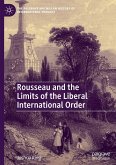Essay from the year 2008 in the subject Politics - Political Theory and the History of Ideas Journal, grade: 80%= good, University of Kerala (Department of Political Science), course: Political Theory- Liberal Tradition, language: English, abstract: This essay compares the classical social contract theories of Hobbes, Locke and Rousseau. Different perceptions of the state of nature resulted in different ideas about the social contract and its emphasis on either security (Hobbes), individual rights (Locke) or the collective freedom of Rousseau's general will. Political philosophy is believed to have started with Plato's "Republic", the first known sophisticated analysis of a fundamental question that humans have probably been concerned with much longer: how should human society be organised, i.e. who should rule and why? Plato believed that ruling required special training and skills and should therefore be left to an aristocracy of guardians who had received extensive training. While the notion that ruling requires expertise can hardly be denied there is also agreement among most philosophers that whoever qualifies for the job of ruling needs to do so with the interest of the people in mind. But what is the interest of the people and how can it be discovered? According to Plato, a necessary precondition for rulers is wisdom and that is why he wanted his guardians to be especially trained in philosophy. One may think that the people themselves should know what is best for them but somewhat surprisingly this idea has been rejected not just by Plato but also by many philosophers following him. Another approach is to link rule on Earth to a mandate received from a divine Creator. However, even the idea that humans could not exist without a government has been questioned, most notably by anarchism. Thus, the question of how political rule, the power to make decisions for others, could be justified is an essential one. Only legitimate rule creates obligation and without obligation it is hard to see how any form of society can survive. It is precisely for these elementary questions that social contract theories attempt to provide an answer for. The social contract can be seen as a device both for justifying not only rule itself but a particular type of rule, and demonstrating that political obligation can indeed be demanded. A unique feature of the classical social contract theories discussed in this paper is that they started out with an analysis of the state of nature.
Hinweis: Dieser Artikel kann nur an eine deutsche Lieferadresse ausgeliefert werden.
Hinweis: Dieser Artikel kann nur an eine deutsche Lieferadresse ausgeliefert werden.








